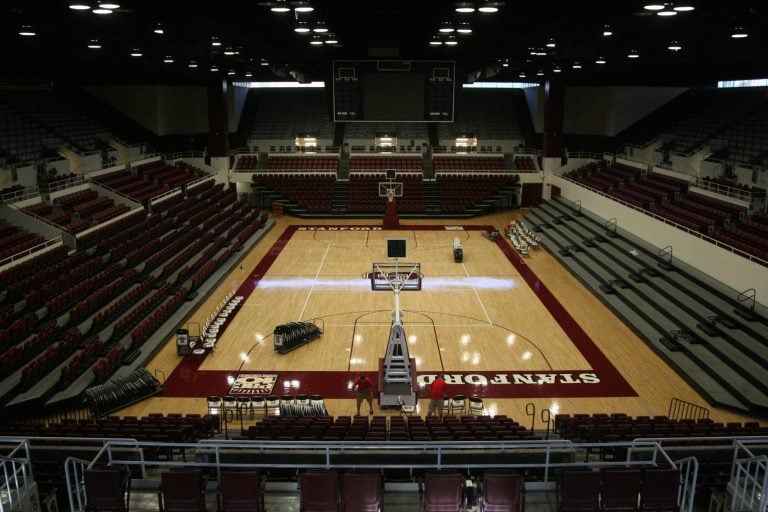There will be no Pac-12 sports until 2021.
The Pac-12 Conference released a statement yesterday afternoon, announcing that the conference would postpone all athletic competitions until at least Jan.1, 2021 due to the ongoing COVID-19 pandemic. This decision came after consultations with university athletic directors and Pac-12 COVID-19 Medical Advisory Committee.
“The health, safety and well-being of our student-athletes and all those connected to Pac-12 sports has been our number one priority since the start of this current crisis,” Pac-12 Commissioner Larry Scott said in the statement. “Our student-athletes, fans, staff and all those who love college sports would like to have seen the season played this calendar year as originally planned, and we know how disappointing this is.”
A multitude of Stanford sports with fall seasons are affected by the decision, including football and a trio of 2019 NCAA-Championship winning teams: women’s volleyball, women’s soccer and men’s water polo.
Stanford football has been on campus for voluntary workouts since early July, and women’s volleyball along with both men’s and women’s soccer returned to the area on Sunday in preparation for their fall seasons.
The university is still determining whether these teams will remain on campus and how the changes will affect fall athlete housing. Stanford Athletics was unable to provide further information.
The postponement may also force winter sports, which includes both men’s and women’s basketball, to push back the starts of their seasons. Last year, both programs scheduled non-conference games throughout November and December, which will no longer be allowed under current Pac-12 regulations.
The Pac-12’s decision came just hours after the Big Ten announced a similar cancellation for all fall sports. However, not all Big Ten members, most notably football head coaches Nebraska’s Scott Frost and Michigan’s John Harbaugh, were pleased by the decision. Unlike the Big Ten, the Pac-12 CEO Group voted unanimously to postpone the sports for the remainder of the calendar year.
“At this point, it has become apparent that competing this fall would introduce undue risk in terms of the health and safety of participants and the spread of the virus in the communities in which competitions were scheduled to take place,” said Stanford Director of Athletics Bernard Muir in a statement yesterday. “Beyond the widespread prevalence of COVID-19 across our country right now, there are also still many unknowns with respect to the potential long-term health implications of the virus for those who contract it.”
This decision comes after a projection by University of Illinois computer science professor Sheldon Jacobson found that there would be a 30-50% COVID-19 infection rate among college football players if the season continued. Three to seven football players would also die due to the virus.
As of Aug. 10, Stanford Athletics has conducted 987 total tests on 212 student-athletes who have returned. Of the 987 tests administered to date, 12 student-athletes have tested positive. Of the 12 positives, 11 have recovered and been cleared to resume activities, while one is currently isolating and following proper protocols based on current guidelines.
Muir ensured Stanford will maintain all athletic scholarship commitments to Cardinal athletes who choose to not participate in competitions due to concerns related to COVID-19. The Pac-12 also urged the NCAA to grant an additional year of eligibility to all players who choose to opt-out.
The remaining three Power Five conferences besides the Pac-12 and Big Ten — the SEC, ACC and Big-12 — hope to move forward with their fall sports seasons as currently planned.
Alabama football head coach Nick Saban recently said he felt his “players are a lot safer with us than they are running around at home.”
“Today’s decision is disappointing for many people, but none more so than our student-athletes, who have worked so hard for so many years to reach this point in their athletics pursuits,” Muir said. “I remain hopeful that we will find a way to create an opportunity for them to compete safely in the winter or spring.”
Contact Jeremy Rubin at jjmrubin ‘at’ stanford.edu.
